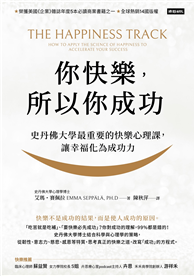This open access book, originally published in Portuguese in 1988 and now available in English for the first time, describes the Brazilian educator, Antonio Leal’s, experiences teaching so-called "unteachable" children in Rio de Janeiro’s favelas. A Voice for Maria Favela tells the story of how Leal considers what the children bring to the class, gradually engaging them in developing a narrative about Maria Favela, a single mother and housemaid. Leal uses the sounds within the story to draw out the students’ abilities to see enunciation and articulation as a process of becoming literatized.
A contemporary and admirer of Paulo Freire, Leal nevertheless recognised that his students’ needs could not be theorized along Freirean lines of oppressor/oppressed. He devised an emancipatory approach that is more focussed on the individual child and their capacity for self-expression than those often found in critical pedagogy. The book puts forward a unique type of radical pedagogy and philosophy of education, developed through direct classroom observation. The book includes a substantial introduction written by the translator Alexis Gibbs (University of Winchester, UK) and preface by Inny Accioly (Fluminense Federal University, Brazil). The ebook editions of this book are available open access under a CC BY-NC-ND 4.0 licence on bloomsburycollections.com.| FindBook |
有 1 項符合
A Voice for Maria Favela: An Adventure in Creative Literacy的圖書 |
 |
A Voice for Maria Favela: An Adventure in Creative Literacy 作者:Leal / 譯者:Gibbs,Alexis 出版社:Bloomsbury Academic 出版日期:2024-05-30 語言:英文 規格:平裝 / 136頁 / 23.39 x 15.6 x 2.54 cm / 普通級/ 初版 |
| 圖書館借閱 |
| 國家圖書館 | 全國圖書書目資訊網 | 國立公共資訊圖書館 | 電子書服務平台 | MetaCat 跨館整合查詢 |
| 臺北市立圖書館 | 新北市立圖書館 | 基隆市公共圖書館 | 桃園市立圖書館 | 新竹縣公共圖書館 |
| 苗栗縣立圖書館 | 臺中市立圖書館 | 彰化縣公共圖書館 | 南投縣文化局 | 雲林縣公共圖書館 |
| 嘉義縣圖書館 | 臺南市立圖書館 | 高雄市立圖書館 | 屏東縣公共圖書館 | 宜蘭縣公共圖書館 |
| 花蓮縣文化局 | 臺東縣文化處 |
|
|
圖書介紹 - 資料來源:博客來 評分:
圖書名稱:A Voice for Maria Favela: An Adventure in Creative Literacy
|









